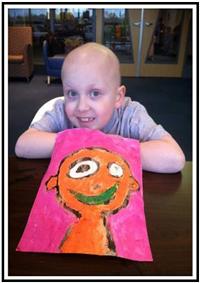Breaking the Cycle: Navigating Mental Health and Parenting
By Emi Sano
It’s no secret that this generation of parents is determined to break generational cycles and become better versions of themselves for their children. As a mom, I was initially surprised by my difficulties in self-regulating during moments of heightened emotional distress with my child. His cries, screams, and physical outbursts were highly triggering for me, often sending me into fight-or-flight mode. I would do anything to make it stop, whether by giving in or dropping boundaries, which wasn’t the type of parent I wanted to be.
When my son reached the toddler stage, I realized I needed to understand why I was struggling and find ways to help myself before we both ended up having meltdowns together. We’ve had several of those, by the way. I dove in headfirst, finding two informative podcasts that have guided me over the past year and a half and reading countless self-help books for both personal growth and parenting. I’m here to tell you – this isn’t a quick fix.
The Marathon of Mental Health in Parenting
Working on your mental health while parenting is not for the weak. This is a marathon, not a sprint. If you expect quick results, I’d stop you right here. Before you even start, you need to change your mindset about it being an instantaneous a-ha moment. There will be several of those moments along your journey, each bringing more challenges to overcome. Initially, I thought I could manage this journey on my own, but as I progressed, I realized I needed someone to talk through my revelations and provide guidance. Recently, I started therapy, which has allowed me to dive deep, gaining insight and tools for self-regulation.
How to Navigate Parenting and Self-Regulation
How can you parent a young child who has no understanding of emotional regulation while you work on finding ways to regulate your own? I’m not an expert, but these are helpful tools I’ve learned along the way:
1. Give Yourself – and Your Child – Some Grace
What does that mean? It’s okay to have feelings – both of you. It’s okay to be frustrated that you can’t handle their big feelings right now, and it’s okay that they’re having big feelings. You don’t need to be happy 100% of the time around your kids. They deserve to see that you have struggles, just as they do. The big change for you, dear parent, is that they also need to see how you handle and cope with those struggles to learn to do that themselves.
So, give yourself some grace and let them learn to give themselves grace as well. We’re human. We have big feelings. We’ll be okay.
2. It Will Be Harder Before It Gets Better
While working through your past trauma or any generational issues you are trying to break from, you will notice that your reactions may be the opposite of how you want to be. And that is completely normal. I felt like I was always going to be the mad and yelling mom. If you feel this way, know that you are not alone. I’ve been working on myself for the past 2.5 years, and I still have hard times. It’s not as bad as it used to be, and my 3.5-year-old has been walking alongside me, learning with me.
What helps me through these hard times is journaling, music, talking it out, and remembering to breathe. My son helps remind me to breathe. He will see the frustration building in me and say, “Mom, just breathe,” and sometimes I ask him to help me. He happily holds my hand so we can breathe together.
3. It’s Never Too Late to Repair
This tip comes from Dr. Becky Kennedy, host of the podcast “Good Inside” and author of the book with the same title.
What does repair mean? It means owning up to your mistakes and feelings without blaming anyone else. For example, if you had a heated argument with a friend over them not bringing food to a potluck, you might later apologize:
“Hey, I’m really sorry about being upset that you showed up without food. I was stressed out all morning that we weren’t going to have enough to feed everyone, and when I saw you come in empty-handed, it pushed me over the edge. I was just not in a good headspace when I started yelling.”
This way, you’re not blaming your friend, and you’re owning up to your big feelings. With toddlers, it can be as simple as, “Hey, I’m sorry I yelled at you earlier. I was feeling overwhelmed and forgot my tools to calm down. I am working on this every day, and today, I was having a hard time.”
By doing this, your children will start saying the same as they get more exposure to what repair looks like. My 3.5-year-old often tells me, “Mommy, I’m sorry I was yelling and not listening.”
In Summary
Parenting is hard, even without working on your own mental health. Add in self-regulation, anxiety, depression, ADHD, or a new autism diagnosis, and it sounds like exhausting and hard work. Just know that you don’t have to hide who you are from your children.
You deserve to be your raw and authentic self while you go through your journey of rediscovery. I hope this post validates you in some way.
You’re doing a great job. As Dr. Becky would say: “You are a great parent, you’re just having a hard time.”
Give yourself grace, time, and remember, it’s never too late to repair.
Helpful Resources for Parents on Mental Health and Parenting:
https://www.janetlansbury.com/



How to Talk so Littles Will Listen Book
About the Author:
Emi Sano is an author and a mom blogger. She currently works from home as a social media creative assistant and content creator. She has a three year old son who keeps her busy and teaches her new life lessons every day.
Other Mental Health and Parenting Blogs You Might Enjoy:
- Self Care and Stress Management: Tools To Improve Mental Wellness
- “Doable” Things To Keep Your Family Healthy & Happy
- Healthy Relationships: A Simple Concept that People Make More Complicated
- Moving to a New City with No Friends or Family
Want to see more blogs like this and get notifications on local events and happenings? Subscribe to our free weekly newsletters.







